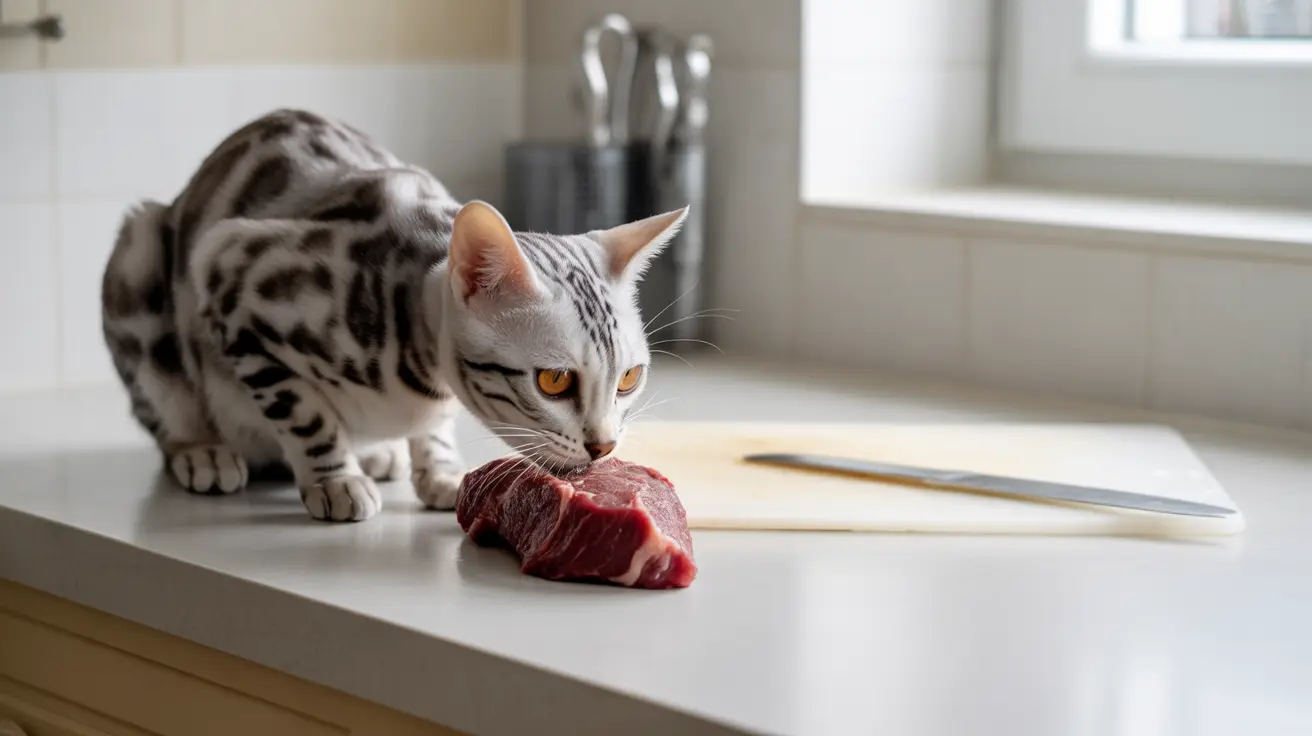Understanding Salmonella in Cats
While many pet owners worry about food safety for themselves, they often wonder, "Can cats get salmonella?" The answer is yes - cats can indeed contract salmonella, though they're generally more resistant to developing severe symptoms than humans. Salmonellosis in cats is a bacterial infection that can range from mild to severe, depending on various factors including the cat's age, health status, and immune system strength.
This potentially serious condition deserves attention from pet owners, as it can not only affect your cat's health but also poses risks to human family members. Understanding the causes, symptoms, and prevention methods is crucial for maintaining both feline and household health.
Common Causes and Risk Factors
Cats typically contract salmonella through consuming contaminated food, particularly raw or undercooked meat. Environmental exposure can also occur through contact with infected animals or contaminated surfaces. While healthy adult cats often have natural resistance to salmonella infection, certain factors increase their risk:
- Young kittens with developing immune systems
- Senior cats with weakened immunity
- Cats with underlying health conditions
- Stressed cats or those receiving antibiotic treatment
- Cats fed raw food diets
Recognizing the Signs of Salmonella in Cats
Early detection of salmonellosis symptoms can lead to better outcomes. Common signs include:
- Severe diarrhea, often with blood or mucus
- Persistent vomiting
- High fever
- Lethargy and weakness
- Decreased appetite or complete loss of interest in food
- Dehydration symptoms (sunken eyes, dry gums)
- Swollen lymph nodes
Diagnosis and Treatment Approaches
Veterinarians diagnose salmonella infection through various methods, including physical examination, fecal culture tests, and blood work. Treatment typically focuses on:
- Fluid therapy to combat dehydration
- Electrolyte replacement
- Nutritional support
- Antibiotics in severe cases or for high-risk patients
- Isolation from other pets during recovery
Prevention and Safety Measures
Preventing salmonella infection in cats involves several key practices:
- Feed commercial cat food from reputable manufacturers
- Avoid raw food diets unless under veterinary supervision
- Keep cats indoors to limit exposure to contaminated environments
- Practice proper hygiene when handling cat food and litter boxes
- Regular veterinary check-ups to monitor overall health
Recovery and Long-term Management
Most cats with mild cases of salmonellosis recover within a few days to weeks with appropriate care. However, some cats may continue to shed bacteria in their feces for weeks or months after recovery, requiring ongoing precautions to prevent transmission to other pets and humans.
Frequently Asked Questions
Can cats get salmonella from eating raw meat?
Yes, cats can contract salmonella from consuming raw or undercooked meat. While cats have more resistant digestive systems than humans, raw meat still poses a significant risk for salmonella infection.
What are the symptoms of salmonella poisoning in cats?
Common symptoms include diarrhea (possibly bloody), vomiting, fever, lethargy, decreased appetite, and dehydration. Severe cases may show additional signs like rapid heart rate and jaundice.
How do I prevent my cat from getting salmonella?
Feed your cat properly cooked or commercial pet food, maintain good hygiene practices, keep litter boxes clean, and limit outdoor access where they might encounter contaminated substances.
How is salmonella treated in cats, and when are antibiotics used?
Treatment focuses on supportive care, including fluid therapy and nutritional support. Antibiotics are typically reserved for severe cases or immunocompromised cats to avoid creating bacterial resistance.
Can cats transmit salmonella to humans, and how can I prevent transmission?
Yes, cats can transmit salmonella to humans. Prevent transmission by washing hands after handling cats or litter boxes, practicing proper hygiene, and keeping surfaces clean, especially if a cat is infected.






